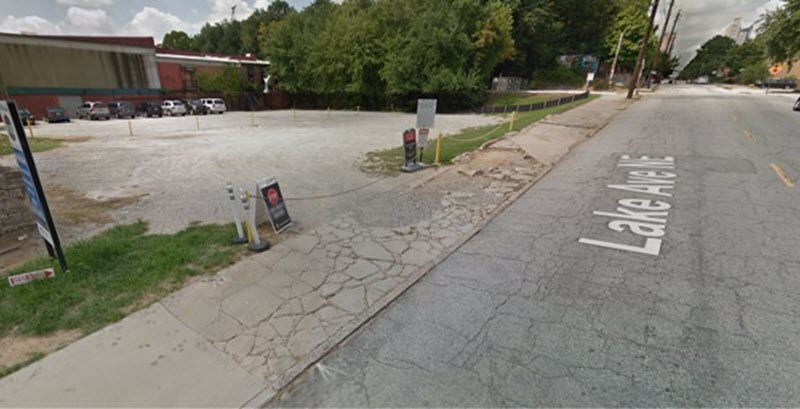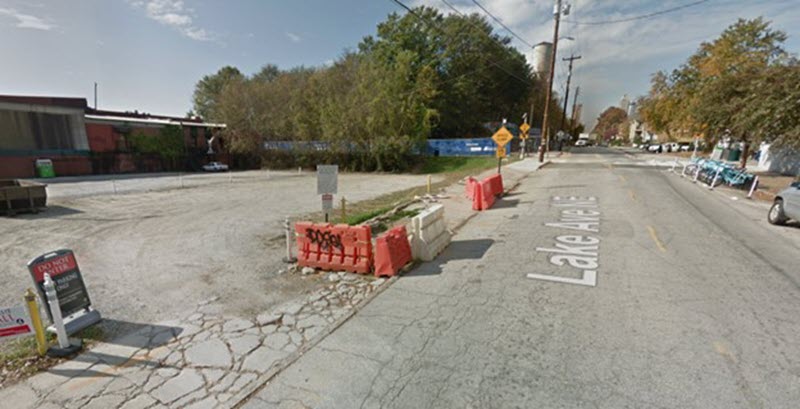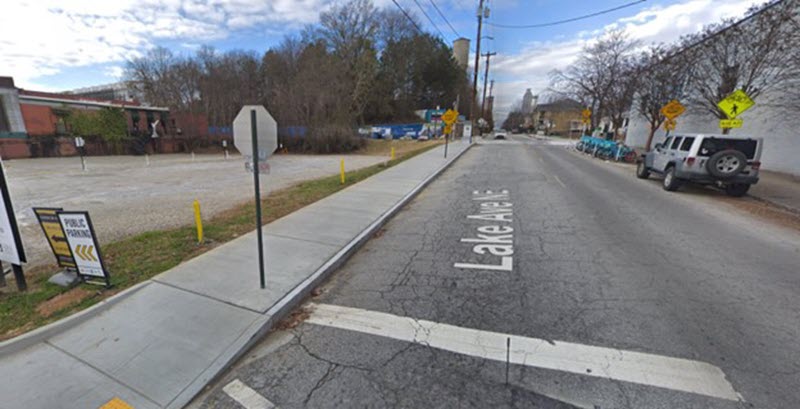By Aaron Fowler
For the uninitiated, Atlanta sidewalks are the financial burden of property owners but the legal liability of the City. Several years ago I learned this the hard way.
My condo board in Midtown reached out to the City requesting the repair of a broken sidewalk outside our building. In return, the condo received a notice from the City that the sidewalk was indeed broken, and we were financially responsible for the repair.
Thankfully, that cost could be shared among many residents in the condo, but for many homeowners, sidewalk repair can be a significant and unexpected financial burden.
Through the hard work of CPNO’s advocacy and our council member Amir Farokhi, who has long been an advocate for pedestrian issues, our neighborhood has made progress in getting key sidewalk repairs accomplished.
The unfortunate reality is that Candler Park and every neighborhood in Atlanta have significant sidewalk repair needs. On my street (Iverson) alone it’s hard to walk more than a block without encountering a section of sidewalk in disrepair.
The sad shape of Atlanta’s sidewalk infrastructure should be no surprise to any resident or visitor. Perhaps more debatable is why progress in addressing a city-wide issue has been so elusive for our city, in light of all the data we have on the problem and the continuous litigation surrounding it.
In the book, Instructions to Deliver, author Michael Barber recounts how former U.K. Prime Minister Tony Blair made the case for expanded government in his country. Blair’s administration understood that it couldn’t expect public support for expanding programs and services if there wasn’t public trust in the services the government provided.
This led to a series of initiatives on tracking the effectiveness of government program delivery, and Barber served as the head of that Delivery Unit.
A similar concept of Delivery Teams was championed by New York City Mayor Michael Bloomberg and promoted through Bloomberg’s philanthropic work. Atlanta’s connection to this governance trend is that in 2011 the city received a $200,000 grant from the Bloomberg’s Foundation to support the creation of Atlanta’s first 311 call center. Mayor Kasim Reed championed the call center as a way for the city to provide more transparency and accountability to its residents.
In many ways, the 311 center has been a success. Potholes, street lights, and missing trash pick-ups can all be easily reported through the 311 website or call center. The 311 center is able to use that data to help city leaders stay informed on the number of potholes or sidewalks being called in, and, in theory, adjust city policy and budget as a result.
There might even be an argument to be made that the increased spotlight on our public streets helped move city leadership into the creation of a unified Department of Transportation. Yet there is one item you can report to 311 where the instructions to deliver seem to be tracked more in years than days: Sidewalk repair.

In 2016 I was out for a run on the Beltline when I witnessed a mother attempting to navigate a broken sidewalk near Krog Street Market. In that moment I was struck by how dangerous and challenging it was for her to navigate around sidewalk rubble.
Shortly after that encounter, I put in a 311 request to notify the city about the sidewalk. My initial request was July 2016, and the image above shows the state of the sidewalk there a month later.

About 18 months after I initially contacted the City, the sidewalk was finally repaired. During that time I reached out for updates every few months to understand where it stood in the process. In those conversations I was struck by front line city staff’s commitment to wanting the repair to happen but saddened by how challenging the process had been for all parties involved.
Despite having had three other sidewalk repair requests at this same location, the city had few easy options. The City could either wait on the owner to repair the sidewalk, or have the City complete the work and charge the property owner for the work done. To an unwilling property owner, the latter option could easily become contentious, litigious and costly. This is why most repairs are a lengthy process or don’t get done at all.

At a city level, estimates from 2020 place our sidewalk repair backlog at around $1 billion (pre-inflation). Despite that eye-popping number, Atlanta’s sidewalk repair bill is not that unusual for a city our size. Los Angeles, for example, is in the midst of a $2 billion sidewalk project over the next 10 years.
But our significant backlog was also not created overnight, and is the result of decades of neglect while keeping a repair policy that has proven time consuming for staff and ineffective for residents. Our city leadership have found themselves between a rock and a hard place.
Many cities have started transitioning away from placing the full burden on residents. Chicago, Dallas, Portland (OR), St. Louis, San Antonio, Los Angeles and Madison (WI) all have various cost-share or rebate programs in place. These local governments understand that they must play a larger part in encouraging a good state of repair in sidewalk infrastructure.
Despite how few large American cities take full responsibility for maintaining city sidewalks, Austin, Texas, Washington, D.C. and Lincoln, NE being rare exceptions, there’s a strong argument to be made for Atlanta to take on the full responsibility of our sidewalk infrastructure. It is a natural fit that Atlanta Department of Transportation, which has the expertise in road and trail maintenance, ADA-compliance and receives state and federal transportation dollars for general repair, would also be in charge of ensuring our sidewalks are well maintained.
While Atlanta’s policy of placing its concrete burden on residents may be the national norm, the impact of our decades-long failed sidewalk repair policy is stumblingly apparent to all who dare walk outside.
Aaron Fowler, a resident of Iverson St., has lived in Candler Park since 2022. He previously worked in transit operations and planning, leading Georgia Tech’s transportation division and serving as senior transit planner for the Atlanta Regional Commission. Aaron is a former board member of Propel ATL, Atlanta’s advocacy group for active and sustainable transportation.